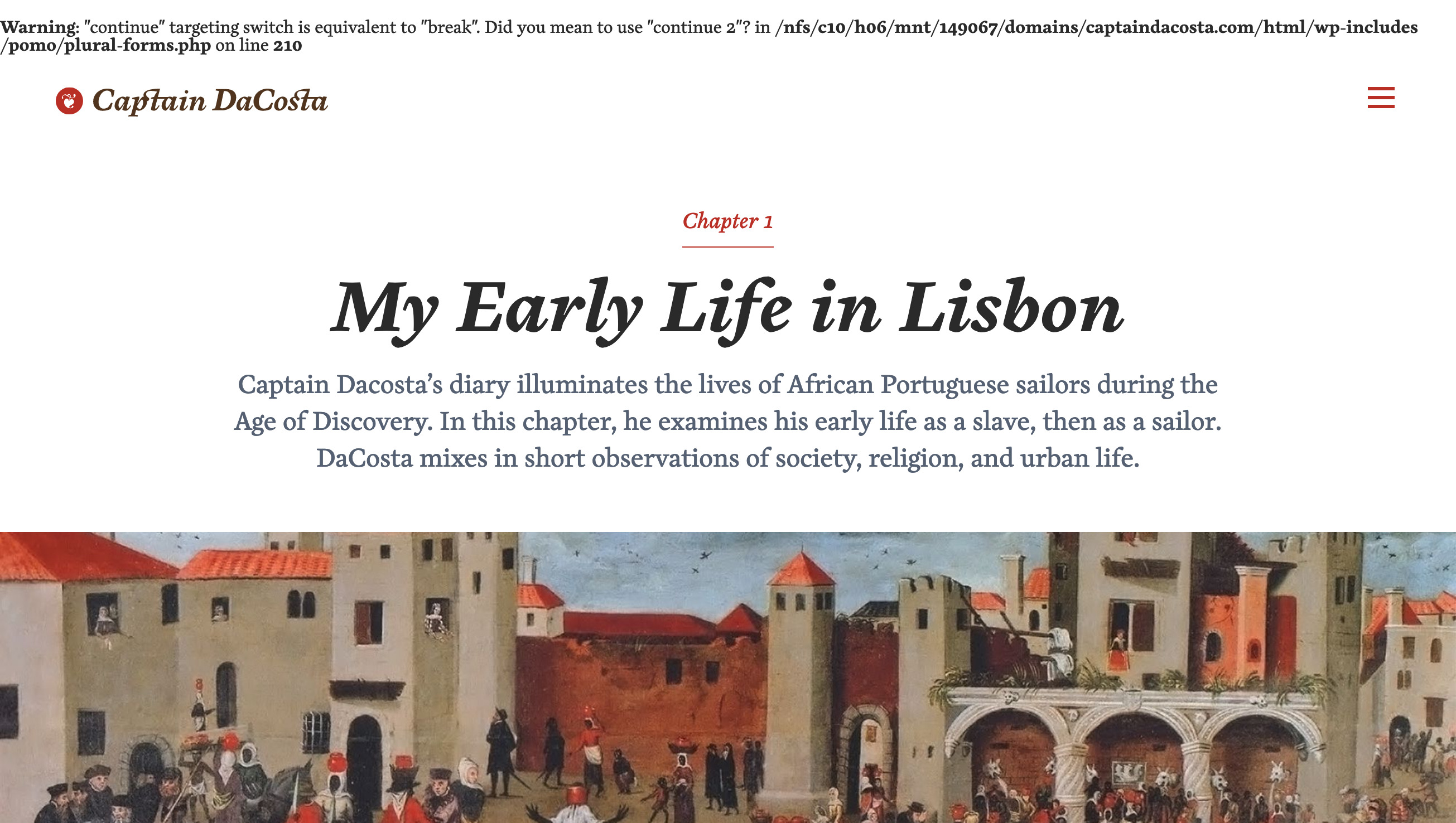Creating Domain Specific Error Helpers in Go With errors.As
The other day, I was reading a website about some historical documents, when I saw that it had an error message on top:

Screenshot from the site
Some quick searching online for the error message revealed that it was caused by a mismatch between the site’s versions of PHP and WordPress. Older versions of WordPress had a bug in the switch statement of a certain localization component, and later versions of PHP dump a warning about this bug out to the end user HTML. When I came back to the site a few days later, it had been fixed.
The ultimate reason for my seeing for the error message as a random reader is that PHP has too many ways to deal with errors:
Builtin PHP functions, and therefore any PHP project, have a whole range of error handling mechanisms — errors, warnings, returning error values, and exceptions. At every point, calling code needs to know which system will be used to handle errors.
PHP often chooses to send warnings like this right out to the end user because it doesn’t trust operators to actually read their Apache logs. Such a practice would be very out of place in the Go programming language.